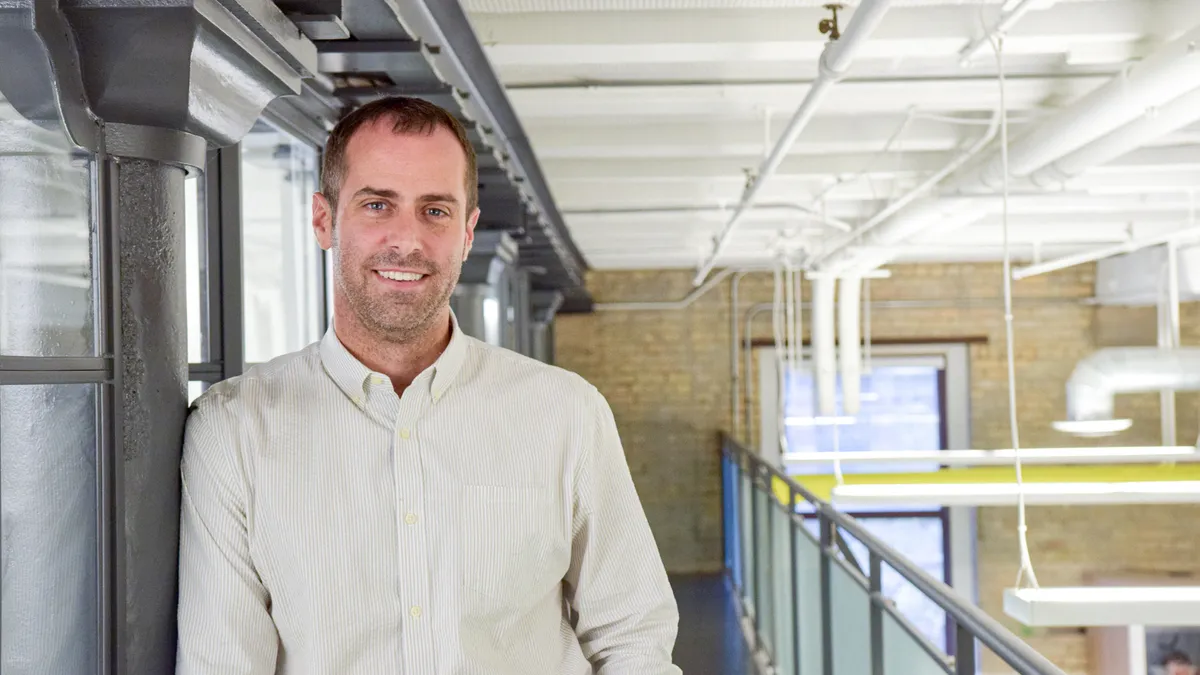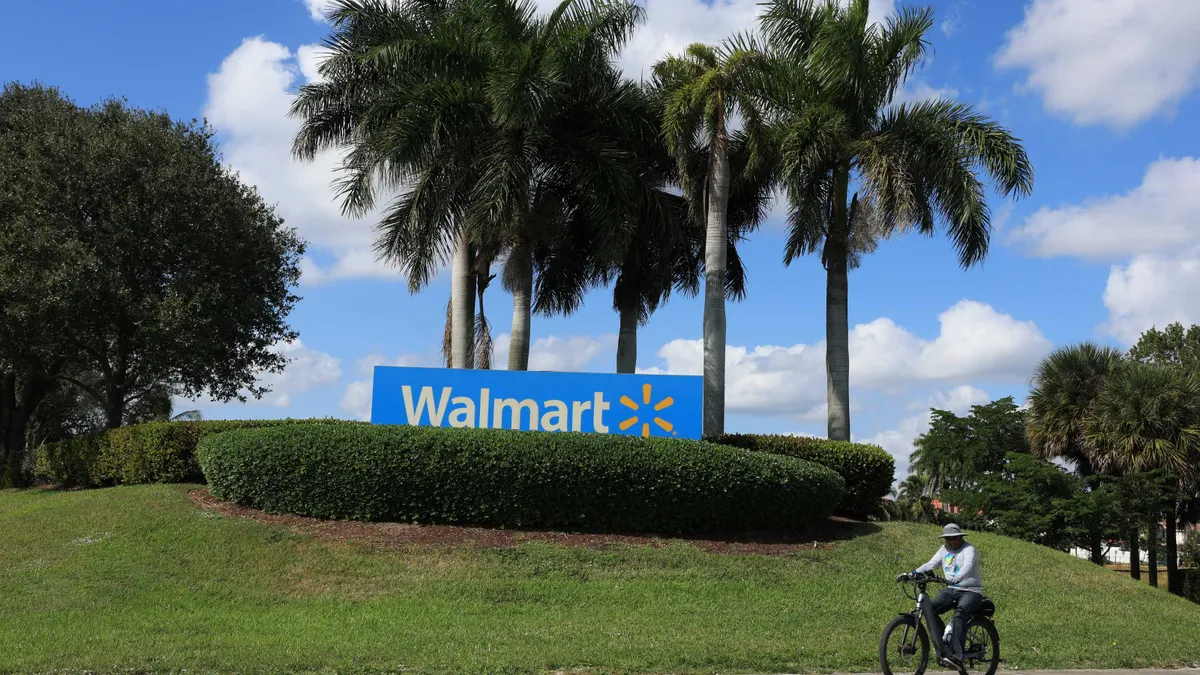For Charlie Youakim, much of last year felt like watching a slow-moving train wreck.
First, the year ushered in “techpocalypse,” as the Sezzle CEO refers to it, which crushed the venture funding and valuation outlook for fintechs and the growth-at-all-costs mentality many employed.
Then, as the buy now, pay later company sought to improve its financial outlook and pursue profits, Sezzle cut 20% of its staff and retreated from international markets.
Finally, Minneapolis-based Sezzle’s planned acquisition by Australian rival Zip fell through in July.
Last year “was probably the most stressful time in my life — not just business career, but life,” said Youakim, who’s the father of a two year old, Cash.
Despite that, the CEO, a native Minnesotan, sought to keep staff in the loop on Sezzle’s challenges and how company executives planned to tackle cash burn and pursue profitability. Youakim’s transparency with employees “helped tremendously,” said Lee Brading, Sezzle’s senior vice president of corporate development and operations.
The 46-year-old CEO, who doesn’t have an assistant and obsesses over key performance indicator dashboards, is beginning to see those turnaround efforts pay off. In the fourth quarter, Sezzle was profitable, and Youakim is pledging to deliver that for the next four quarters, or more.
Youakim was proud to see staff rally around the push to get Sezzle in a better financial position. “Every muscle in the Sezzle body was basically working on that,” said Youakim, who owns 40% of the company.
That recent transformation hasn’t lifted the company's stock price. Youakim acknowledges that apparent investor skepticism, but dismisses it. “I feel like the situation’s very bright for us now,” he said.
Embracing the pivot
Those close to the CEO said the ability to detect and diagnose a problem and quickly pivot is a Youakim hallmark. It’s what many appear to be betting on as Sezzle aims to grow its market share in the crowded BNPL space.
Youakim, whose father is Palestinian, credits his parents with instilling a strong work ethic and cultivating a happy home during his childhood. As the fifth of six kids, “you already know what you’re supposed to do,” Youakim said with a laugh.
He’s a self-described “tinkerer” who built his own computers and made web pages in the early days of the internet. After getting a degree in mechanical engineering in the late 1990s, Youakim worked in software development before returning to the University of Minnesota for business school.
That’s where one of his first pivots occurred: As job and internship prospects dried up amid the Great Recession, Youakim and his cousin Bob opted to start their own business, even though none of Youakim’s family or friends had any entrepreneurial experience.
The two initially embarked on a hardware-focused business in the parking sector, but when that route proved too difficult, they switched gears and focused on software. The parking payment app, Passport, found success, although a dispute between the two led to Youakim’s exit from the company in 2015.
That experience left him with “a chip on the shoulder” and eager to prove what he could do with a new company.
Like Passport, Sezzle was initially formed to tackle one problem and then pivoted to address another.
When Youakim and his co-founder and friend Paul Paradis started Sezzle in 2016, they were initially trying to lower the cost of payment processing for merchants by tapping ACH payments.
Sezzle shifted to BNPL in 2017 after Youakim’s wife, Jenn, noticed an Afterpay advertisement on social media. “I’m good at that, picking the wrong idea at the start and then adapting,” Youakim said.
‘This is a rocket’
Even after Sezzle found its BNPL focus, the company struggled to gain investor traction in the U.S. while competing for attention against larger rivals. Nonetheless, Youakim said he thought the business was “a rocket,” so he used his $8 million Passport stake to invest in one of Sezzle’s early funding rounds.
Youakim and his team then turned to investors in Australia, which was ahead of the BNPL curve compared to the U.S., and the company went public in that country in 2019. But as the Australian market began to sour on BNPL last year, and the Zip merger plans collapsed, Youakim needed to pivot again.
Sezzle announced plans in March to list its shares on the Nasdaq Stock Market by the end of September, opening up another path for the company, said Paradis, who is the company’s president, as well as Youakim’s grad school ping pong pal.
That direct listing, and the company’s plans to do a reverse stock split, given its stock currently trades at the equivalent of 55 cents per share on the Australian exchange, suggest Youakim is taking on a tough assignment, said Erik Gordon, a professor at the University of Michigan’s Ross School of Business. “All of these are signs in the U.S. market of a weak company,” he said.
Youakim said Sezzle has been viewed as an “oddball” because he personally invested in the company, but he embraces that underdog status. “It’s almost like against all odds, how we built this company,” he said. “Every step is a little bit unusual. I’m just a big believer that you take the path in front of you … keep on just doing a good job, and you will eventually find success.”
In his eyes, that includes the company’s focus on doing the right thing for its customers. Youakim underscores that ambition with Sezzle’s Certified B Corporation status, a certification of social and environmental performance for for-profit companies.
“I always tell people, ‘If you had a kid using your product, how would you want the product to work?’” Youakim said. “You want it to be a useful product for their financial futures.”
Taking on BNPL Goliaths
In taking on sizable BNPL competitors such as Affirm, Klarna and Afterpay, Youakim likened the company to a David among Goliaths. Youakim appreciates the challenge of an uphill battle, Brading said. “I think if we were one of the big gorillas, he’d be bored in a way,” Brading said.
To gain market share, Youakim is counting on Sezzle’s ability to turn a profit before BNPL rivals. “While they’re all pulling back, we feel we can attack,” the CEO said. The company, which aims to be more aggressive in signing merchant partners this year, plans to keep its 290-person headcount flat while growing its consumer subscription product and its capital offering for merchants, Youakim said.
Sezzle needs more growth because profits without scale will only get the company so far as larger players achieve profitability, Gordon noted. “You have to understand what game is being played in your industry and how to win that game,” Gordon said.
Friends and colleagues expect Youakim will stay light on his feet as he leads Sezzle, ready to problem solve again when the time comes, while staying true to himself and his values.
“He’s just the same guy that I’ve been hanging out with since I was in my twenties,” said grad school classmate and golf buddy Kyle Brehm. “He’s an approachable human.”






















